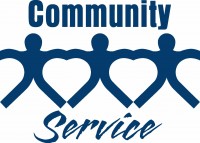Yesterday, I challenged churches to kill their programs. This doesn’t mean we shouldn’t have programs. We should…if they are properly planned and executed. Here are a few suggestions for planning new church programs.
 1. Train on the Way
1. Train on the Way
All programs must include something beyond just training. It does not appear that Jesus or the early church ever did training just for training. Most of the training was while they were on the way to do something. It was on the job training.
If Jesus taught evangelism training today, it would go like this. He would announce the training in church, in the bulletin, and on the website. Then, on the night of the training, when everyone arrives, He would say, “Ok. We’re all here? Good. There’s a van out back. Let’s all pile in. We’re going to go downtown and hang out with drug addicts. I’ll tell you what you need to know on the way.” I don’t care what program you start, if it does not include actually doing what you are being trained to do, don’t do it.
 2. Help, Serve, and Love Others
2. Help, Serve, and Love Others
All programs should be designed to help, serve, or love other people. I love to study the Bible, but the absolute last thing the church needs right now is more Bible studies.
And while I’m on the subject, the same goes for prayer meetings. We don’t need more prayer meetings. If you are planning a program, don’t make it a Bible study or prayer meeting. We know more than we need to know about the Bible to obey it, and we need to start being answers to our own prayers before we pray about it more. If you want to study Scripture and pray about what you are going to do, fit it in as something you do while you are on the way to love or serve somebody.
 3. Use Small, Achievable Goals
3. Use Small, Achievable Goals
As we learned yesterday, programs need expiration dates. If all programs are being designed to meet specific needs of specific people, it is logical to design the programs to meet small, achievable needs of a few people, rather than the vast, insurmountable needs of a few million people. In this way, you don’t need big budgets or huge crowds of volunteers to accomplish your programs.
All you need is a few people to see and meet a need that they are aware of and which is right in front of them. They don’t need to go to budget committee meetings and petition for money. They don’t need to twist the arms of unwilling recruits. They just see a specific need, and then set out to meet that need. This approach liberates the people to create and conclude their own personal programs.




Leave a Comment or Question